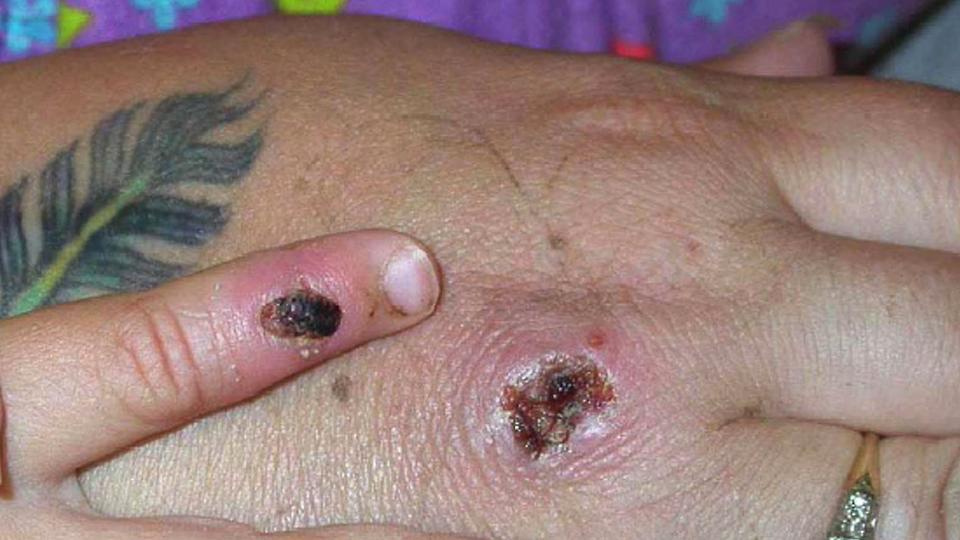WHO to Rename Monkeypox After Scientists Call Out 'Discriminatory' and 'Stigmatizing' Name

Getty Monkeypox
After more than 1,600 confirmed cases of monkeypox have been reported from 39 countries this year, the World Health Organization announced Tuesday that they would be renaming the virus.
"WHO is also working with partners and experts from around the world on changing the name of monkeypox virus, its clades and the disease it causes," WHO Director-General Tedros Adhanom Ghebreyesus said in a briefing. The current name doesn't follow the organizations guidelines that recommend avoiding geographic regions and animal names, another spokesperson said.
The announcement comes just days after more than 30 scientists from around the world called for the renaming of the virus, Time reported.
In a letter published June 10, scientists wrote that while the origin of the current monkeypox outbreak is still unknown, there is an inaccurate narrative linking all cases to Africa.
RELATED: What to Know About Monkeypox — Including How It Spreads — as the CDC Confirms a U.S. Case
"In the context of the current global outbreak, continued reference to, and nomenclature of this virus being African is not only inaccurate but is also discriminatory and stigmatizing," the letter states.
Monkeypox was named because it was first identified in 1958 in colonies of monkeys. The first human case of the virus was found in 1970 in the Democratic Republic of the Congo, according to the CDC.

Courtesy of CDC/Getty Images Monkeypox lesions
Cases have mostly been concentrated to the Congo — which typically sees thousands of monkeypox infections a year — and Nigeria, where there have been more than 200 suspected and 500 reported cases since 2017, according to WHO.
In most cases, monkeypox is mild. After an incubation period of seven to 14 days, the first signs are fever, headache, muscle aches, chills and exhaustion, and the main difference between it and smallpox is that monkeypox causes swollen lymph nodes. Around one to three days after those first symptoms, infected people will develop a rash, typically on the face, that then spreads to other parts of the body.
In the Congo, around 1 in 10 people who contract monkeypox die, but that is not the case in the U.S. — no one has ever died due to the virus here.
RELATED: WHO Officials 'Not Concerned' Monkeypox Outbreak Will Lead to Global Pandemic: 'Not COVID-19'
Monkeypox can spread through a few methods — direct contact with body fluids or the blisters that pop up on the body can lead to transmission, but the main way is through respiratory droplets. While that might sound familiar after two and a half years of COVID-19, monkeypox does not spread as easily. Someone would have to be in prolonged contact with an infected person to contract monkeypox.
According to the CDC, as of June 14, there have been 72 confirmed cases of the virus in the U.S. this year. This isn't the first time the U.S. has seen cases of monkeypox. In 2003 there was an outbreak with 47 cases, according to the CDC.
That outbreak was due to a shipment of animals from Ghana to Texas who then came in contact with prairie dogs sold as pets. Everyone who contracted monkeypox in the outbreak had been in contact with an infected animal, and did not get the virus from another person.

